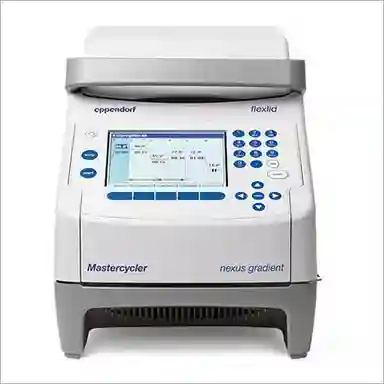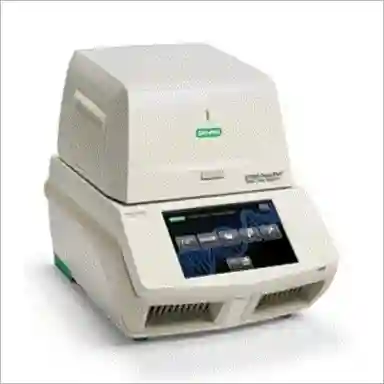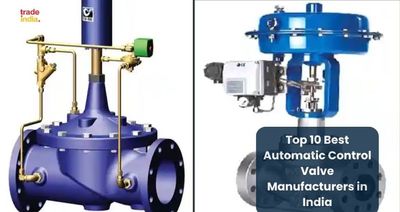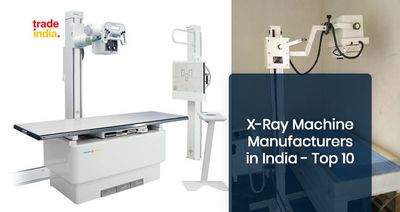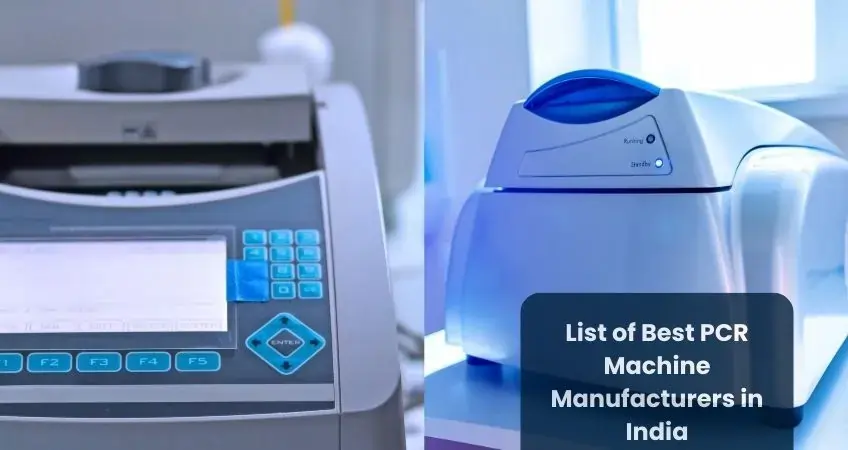
PCR Machine is the cornerstone of molecular biology research and diagnostics; it represents an indispensable instrument in this field. To this end, many Indian manufacturers have emerged as the best with regard to designing high-quality PCR machines. The vast functionality, precise temperature control, fast cycle times, and intuitive interfaces of the systems these manufacturers supply make them ideal for a wide range of applications in life sciences.
What are PCR Machines?
In molecular biology, polymerase chain reaction (PCR) machines are essential tools that allow amplifying and multiplying DNA segments. PCR was invented in the 1980s by Kary Mullis and today it is a standard method for many disciplines including forensics, health diagnostics, genetics, etc. In PCR machines, a reaction mixture comprising DNA, primers, and heat-resistant polymerase enzyme is subjected to heating and cooling cycles. Three primary processes comprise the process: denaturation which takes place at high temperatures, when DNA strands separate; annealing which happens in low temperatures where primers attach to the target DNA sequences and extension which occurs at a moderate temperature as a new complementary strand is synthesized by the enzyme. These cycles replicate the target DNA exponentially, giving a considerable amount to analyze.
In areas such as genetics, gene expression research, and disease diagnosis PCR instruments are necessary. They have contributed significantly, in the fields of genetic variants, DNA sequencing as well as personalized medicine. Modern molecular biology research and applications are now dependent on PCR machines largely because of their efficiency, precision, and adaptability.
How Do PCR Machines Work?
Based on the cyclic mechanism that mimics DNA replication under controlled conditions, PCR devices provide amplification of specific segments of DNA. Three primary steps comprise the method: denaturation, annealing, and extension.
- First, in a process called denaturation the DNA sample is subjected to high temperatures (94- 98°C) This disrupts the hydrogen bonds between complementary bases and results in the separation of double-stranded DNA into two single strands.
- The temperature is lowered to allow short DNA primers to anneal with the target sequences on each single-stranded DNA template. This process is known as annealing and it occurs between 50°C-65° C.
- Prior to the extension of primers and synthesis of new DNA strands, a heat-stable DNA polymerase enzyme should increase the temperature within an ideal range that is normally 72°C. This stage we refer to as the extension.
The amount of DNA doubles in every cycle wherein the three stages are repeated. After 20–40 cycles the target DNA sequence is produced in millions or billions of copies making it detectable for a wide range of applications, such as genetic analysis, scientific research, and diagnostics. The temperature cycles are automatically and accurately controlled by PCR machines, ensuring the correctness of the DNA amplification process.
Exploring the Different Types of PCR Machines
PCR machines are available in different designs and each design is meant to satisfy some needs of research or diagnostic.
- The simplest appliances in PCR amplification are the traditional PCR Machines. They have precise temperature control cycles of annealing, denaturation, and extension.
- Quantitative polymerase chain reaction equipment, also known as qPCR machines, enables real-time DNA amplification monitoring. To quantify and analyze gene expression or DNA content, fluorescent dyes or probes are utilized to measure the amount of DNA accumulated after each cycle.
- Digital PCR apparatus divides a sample into hundreds of unique reactions, thereby allowing measurement of DNA molecules at the precision level. It is particularly useful for high-resolution quantification and the identification of outliers.
- In analyzing RNA, machines for reverse transcription PCR or RT-PCR are used. During reverse transcription, cDNA is synthesized which amplifies PCR. RT-PCR is a prerequisite for gene expression research.
- In nested PCR, two sets of primers are used in two consecutive rounds of the polymerase chain reaction. The second set of primers binds to a specific region within the product of the first reaction so that increased specificity is attained.
- The use of multiplex PCR devices allows for simultaneous amplification in one reaction, multiple target DNA sequences. Multiplex PCR is useful for the purpose of finding several genes or mutations from a single sample.
Uses & Applications of PCR Machines
The PCR equipment is able to amplify and analyze specific DNA sequences, it can be used in many scientific areas. Among the principal applications and uses are:
- Genetic Research: PCR is an essential tool in genetic research as it enables scientists to study genome variants, amplify and analyze specific genes as well investigate hereditary factors behind some diseases.
- Medical Diagnostics: PCR is one of the most common methods used in clinical laboratories for cancer diagnosis, genetic abnormalities, and infectious diseases. It allows pathogen detection, viral load monitoring as well as the search for disease-causing mutations.
- Forensic Analysis: PCR amplifies the tiniest DNA samples from crime scenes, so it is a crucial element of forensic research. This is beneficial for criminal case solving, identifications of individuals, and DNA profiling.
- DNA Sequencing: PCR is an important element of DNA sequencing technologies to sequence entire genomes and decipher the genetic code.
- Gene Expression Studies: Gene expression levels are determined using real-time PCR (qPCR) which provides information on cellular functions, development, and responses to various stimuli.
- Paternity Testing: PCR is used in paternity and relationship testing to compare specific DNA markers from which biological relationships can be determined.
- Environmental Monitoring: PCR allows for the detection and quantification of microorganisms in environmental samples, thereby assisting soil and water quality assessment.
List of Best PCR Machine Manufacturers in India
Bioline Technologies
Bioline Technologies is India’s leading PCR machine manufacturer that specializes in innovative lab equipment. Their PCR machines are famous for their reliability, accuracy, and novelty which have contributed to the development of molecular biology research and diagnosis.
Saaskin Corporation Private Limited
Saaskin Corporation is a leader in the manufacturing of high-quality PCR equipment using advanced technology. Their products are designed for ease of use and accuracy, which corresponds to the requirements of Indian research institutions and clinical laboratories.
2Lians Pte. Ltd.
2Lians is a reputed PCR machine manufacturer that supplies reliable and accurate equipment. Their commitment to quality and technological advancements makes them a reliable option for laboratories looking for modern PCR system.
Exportico Corp
PCR machines are supplied by the well-known Exportico Corp, which offers high quality and reliability. Their products are suitable for all scientific applications and hence preferred by laboratories and research institutes across India.
Abhay Raj International
Abhay Raj International is a leading PCR equipment manufacturer that offers quality and cost-effective solutions. Their products are specifically designed for the unique needs of molecular biology research, medical diagnostics, and forensic applications.
Labcare Instruments & International Services
Labcare Instruments is a reliable supplier of PCR equipment offering a variety of laboratory solutions. Their commitment to client satisfaction, along with efficient post-sales services makes them stand out from the competition.
SV Scientific Private Limited
SV Scientific is a well-known producer of PCR machines that are known for their accuracy and cutting-edge features. Their commitment to R&D means that laboratories are equipped with the latest technology and reliability.
Next Era Technologies
Next Era Technologies is a manufacturer of efficient PCR machines that are equipped with the latest molecular biology technology. Their products are aimed at the evolving requirements of research institutions and diagnostic laboratories.
Hicare Lab Solutions
Hicare Lab Solutions is a renowned PCR machine manufacturer offering advanced equipment that meets international standards. Their focus on innovation and reliability makes them one of the best choices for laboratories that require modern molecular biology apparatus.
Maxome Labsciences Pvt. Ltd.
Maxome Labsciences is one of the leading PCR equipment manufacturers known for its commitment to quality and technological advancement. Their products enable genetic research, diagnostics, and other life science applications to become better.
FAQs: PCR Machines
Q. What is the purpose of a PCR machine?
Ans. To replicate specific DNA sequences, scientists need PCR devices for the amplification of DNA. They play a key role in genetic research, medical diagnostics, forensic analysis and many other molecular biology processes.
Q. How does a PCR machine work?
Ans. Denaturation, primer annealing and DNA extension are performed in the PCR machines using temperature cycling which amplifies specific segments of DNAs. This automated process is essential in making millions of copies for analysis.
Q. What types of PCR machines are available?
Ans. Different types of PCR machines fulfill different requirements, ranging from conventional PCR for standard amplification to real-time qPCR for quantitative analysis, digital, and RT-PCR that can be used in RNA studies.
Q. Can PCR machines be used for diagnostic purposes?
Ans. Yes, PCR devices are commonly used in clinical diagnosis. They play a vital role in identifying infectious diseases, genetic defects and cancer by amplifying specific DNA or RNA markers providing medical practitioners with accurate results of high sensitivity.
Explore More:

